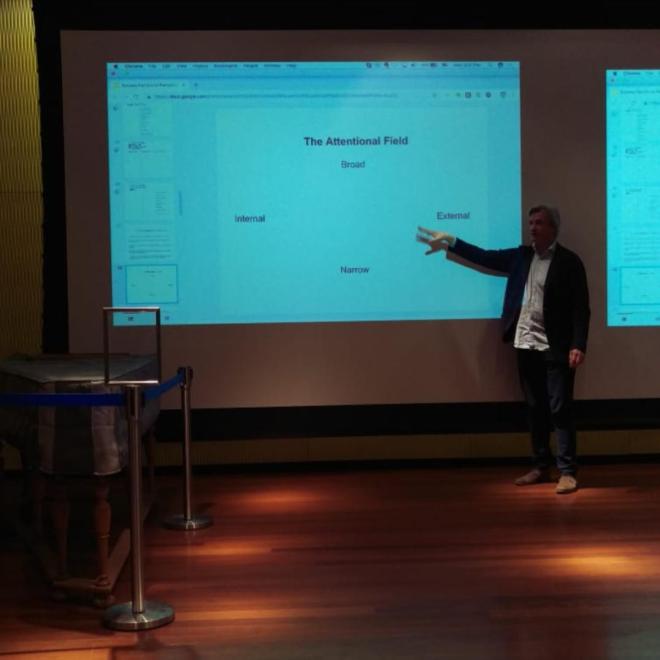
On Monday, Bill Williams gave a lecture on Three Success Factors for Performance at the Yong Siew Toh Conservatory of Music at the National University of Singapore. As it was conducted from 4.30pm to 6.30pm, not many of us were able to attend. A friend who attended took many photographs of the slides and handouts given and shared them in our small WhatsApp group of piano teachers late last night. I tried to make sense of them by arranging them in sequence. I’ve compiled the following for easier reading:
A pianist often feels ‘stressed out’ before or during an important performance, or feels like no matter how much practice has been put in, it’s never quite enough, wondering why it seems that the best performances are left in the practice room. This lecture explores three critically important elements for performance success: Stress Management, Attentional Control (which could be broad or narrow, external or internal) and Preparation.
Williams starts the lecture by talking about Music and Flow, and the Stress/Fight/Flight Response. Why do we love music and what is the appeal of music performance? Music making can generate the Flow State. One of the most important reasons is the satisfaction that accompanies continued mastery of skills, another is that music can convey and evoke powerful emotions without words and connects us to others. Also, playing an instrument can be physically satisfying and performing with others can be very rewarding.
Some of the challenges to this flow are boredom, distractions, extrinsic motivators (thinking about what you’ll get as a result of the activity), and anxiety (which can diminish the ability to focus).
The first Success Factor is Stress Management. Nobody knows how to define stress, but the effects can be physical, mental and/or emotional. For many, stress increases as the stakes increase. These may arise from professional opportunities, music school/conservatory, auditions, competitions, talent identification and concerts. There could be two responses to stress: making it better or making it worse.
The second Success Factor is Attentional Control. It can diminish significantly under high levels of stress, and this is one of the most damaging aspects of the Stress Response. Our inability to control our attention prevents us from being truly connected to the music. This is where Williams embarked on an explanation of The Centering Process. One of these is the ‘Mental Rehearsal Concept’, a highly efficient way to practice (such as, “When the mind is clear, the body follows”, “Break mental rehearsal practice into short segments”).
The third Success Factor is Organisation. It is a key for structuring the learning and retention processes. It is important to establish specific goals for practice and make clear decision about how time will be spent. Time constraints can be used as a method of focusing on the work. It is advisable to taper off the practice to avoid burnout.
In summary, Preparation is the key to success. It helps to solidify habits and to build confidence. Building habits take time and dedicated practice. Consistent practice is essential for a consistent performance. It is important to avoid burnout by planning in advance.
